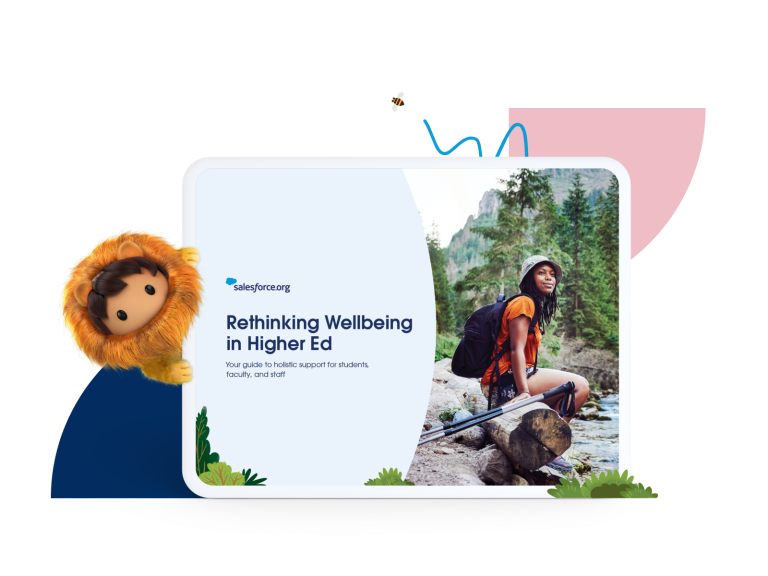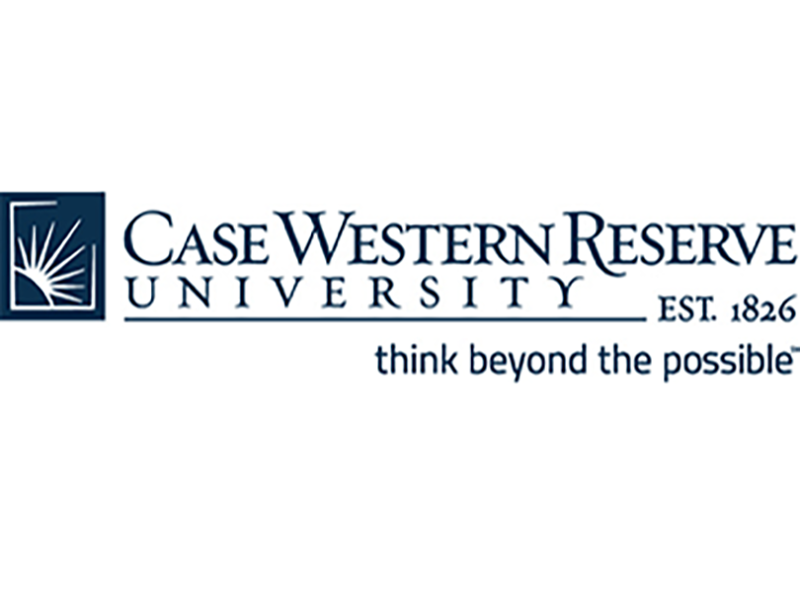Why it’s Important to Provide Proactive and Holistic Support
Students expect a personalized higher education experience that gives them what they need, when they need it. According to the second edition of Salesforce.org’s Connected Student Report, 25% of students expect colleges and universities to provide a personalized experience tailored to their needs. Those needs increasingly connect back to wellbeing and finances: 76% of students said wellbeing is a top challenge, while 74% said financial difficulties are a top concern. Additionally, nearly 9-in-10 students would like their university to communicate with the same amount or more via email, personalized communications, reminders and alerts.
These findings indicate that student support needs to be both proactive and holistic, taking into account all the different factors that could be preventing a student from being engaged and successful. Understanding the challenges students are facing, intervening early, and delivering support through their preferred channels are all fundamental in driving the success of students from anywhere.
How to Provide Proactive and Holistic Support
Proactive and holistic support starts with putting students at the center of the experience. With CRM for higher education, institutions of all sizes can capture a single view of every student to better support them throughout their journey. That view, combined with analytics and self-service tools, enables staff to respond faster to student needs, tailor communications, and ultimately increase retention and graduation rates. With a mobile student portal, tailored success plans, and flexible appointment scheduling, solutions like Student Success Hub are empowering universities to bring students, faculty and staff closer together.
Institutions that deliver proactive and holistic student support are making the following actions a strategic priority:
- Maximize student engagement: Make it easy for students to connect with their peers, as well as faculty and staff, from anywhere. Cultivating a feeling of belonging for every student – whether online, on campus, or in a hybrid environment – is the first step to building engaging student experiences.
- Streamline student services: Deliver a frictionless self-service experience that makes it easy for students to find answers quickly. AI-powered predictions and chatbots help scale support, while creating a more tailored approach that fits student needs.
- Create holistic and equitable advising experiences: Create a 360-degree view of every student to make it easier for staff to fully understand each student’s needs and challenges. Faculty, advisors, and support staff can see who they spoke to last and what questions they asked, ultimately creating a unified and consistent experience. Early alerts enable staff to identify at-risk students early, allowing for timely intervention.
- Foster student wellbeing: Now more than ever, student wellbeing is a top concern globally and institutions are investing in technology to support thoughtful wellbeing strategies. For example, using regular wellness checks to identify mental health issues, food insecurity, financial challenges and more, and using online communities to provide increased access to advisors and support resources.
Tailored student experiences create engaged learner relationships for life. Today’s future-ready institutions know that proactive and holistic support creates a positive experience where students want to come back to campus in order to reskill or upskill throughout their lifetime. The support provided for students today can ultimately drive alumni engagement and additional revenue streams in the future.
Looking for more tips on how to drive proactive and holistic support? Check out this blog from Deloitte and Salesforce.org on what drives student success.

Support Student Wellbeing
Learn best practices for giving the support your students need, including how to create a thriving culture for student wellbeing and tips from higher ed’s first chief wellness officer.
How Case Western Reserve University Helps Every Student Reach their Full Potential
When Case Western Reserve University (CWRU) launched a new strategic initiative aimed at increasing retention, satisfaction, and graduation rates, student success became a top priority across campus. University leadership looked to improve the student experience by boosting engagement and making it easier to connect with their advisors, called “navigators.” Realizing their existing systems couldn’t achieve the transparency and connectivity they required, CWRU looked for new solutions. Since using Student Success Hub, they’ve been able to drive proactive and holistic student support, engaging with 86% of all undergraduate students within a year of launch. Additionally, the university created more than 10,000 advising appointments, and 86% of students reported that their navigators were easy to access for questions and guidance.

“Our guiding strategy of a high-touch, high-tech approach to the student experience has been made possible through the relationships we’ve established and the technology provided by Salesforce.” Tom Matthews, Case Western Reserve’s Associate Provost for Student SuccessCase Western Reserve University
How BI Norwegian Business School Personalizes the Student Journey
With a bold and innovative vision focused on tailored connections, BI Norwegian Business School knew the digital transformation of the student experience was key to surpassing their international competition.
The business school used CRM for higher education to customize each student’s journey from prospect to graduate and connect four campuses as well as their back-office functions. BI Norwegian Business School reimagined their institutional structure and streamlined all their student services into a new department, acting as one single point of contact. Now, current and prospective students can get the support they need from one location instantaneously. They have access to BI’s live chat service, a customized website experience, and receive personalized communications. Staff from all four campuses have a 360 view of each student, access to a unified platform that enables collaboration across the institution, and dashboards allowing them to quickly respond to student needs. With CRM for higher education, the institution has seen exceptional results.
BI Norwegian Business School is now able to resolve more than 80% of student inquiries during first contact. Students get quicker and better answers, leading to increased student satisfaction. And BI Norwegian Business School was also able to deliver a rapid, targeted response to the COVID-19 pandemic with timely communication and by empowering teams to work from home.
Transform the Student Experience
Watch this demo to see how you can deliver proactive and holistic student support at your institution.
In Summary
Proactive and holistic support can transform student experiences into lifelong relationships. As mentioned in Chapter 1, institutions have been able to increase student retention rates by 6.8% by using CRM for higher education. In the next and final chapter of this Future-Ready Playbook, we’ll take a close look at how real-time collaboration networks can support students, faculty, and staff as well as corporate and public/private partnerships.
The Future-Ready Playbook
Learn more about CRM for higher education and dive into the four pillars of the future-ready institution. Each of the following chapters is dedicated to these pillars, with actionable steps you can take to drive learner and institution success from anywhere.

Learn More about Salesforce for Education
Dive into customer stories, success metrics, and tailored solutions for education.
